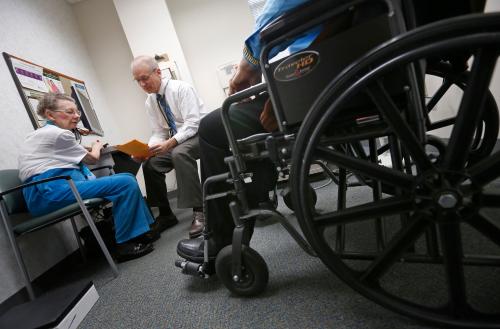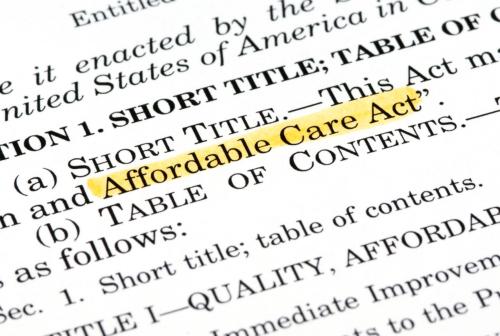This analysis is part of the USC-Brookings Schaeffer Initiative for Health Policy, which is a partnership between Economic Studies at Brookings and the University of Southern California Schaeffer Center for Health Policy & Economics. The Initiative aims to inform the national health care debate with rigorous, evidence-based analysis leading to practical recommendations using the collaborative strengths of USC and Brookings. The following is an excerpt of a piece that was published in Health Affairs Forefront on February 24th, 2022.
Health Affairs Forefront has published articles that advance two diametrically opposing assessments of issues regarding the Medicare Advantage (MA) program. In September 2021, Donald Berwick and Richard Gilfillan (B-G) argued that mounting MA overpayments, many from plan efforts to get physicians to code more diagnoses when they see a patient, simultaneously threaten Medicare’s fiscal soundness and health care delivery; for them, this “MA money machine” is reflected in the extremely high valuations obtained by start-up insurance companies focused on MA and primary-care physician practices that specialize in contracting with MA plans.
In his January 2022 response, George Halvorson (GH) categorically disputes many of the key B-G points, which he views as attacking the fundamentals underpinning MA, including the use of capitation as a payment approach. Most recently, Donald Crane (DC), president and CEO of America’s Physician Groups, advanced a viewpoint consistent with GH, albeit in a more measured narrative.
We have particular concerns with the politics of MA overpayment. This overpayment leads not only to higher profits by plans but to extra (and increasing) benefits for enrollees—a potent combination that complicates reforming the program. The rapid and continuing growth of private plans—which in February 2022 enrolled 46 percent of Medicare beneficiaries—highlights the urgency of reform measures to address excessive payments driven by coding increases, star ratings, and the potential for unreliable county-level rates based on the costs of fewer and fewer beneficiaries in traditional Medicare.
Read the full op-ed on Health Affairs here.
The Brookings Institution is financed through the support of a diverse array of foundations, corporations, governments, individuals, as well as an endowment. A list of donors can be found in our annual reports published online here. The findings, interpretations, and conclusions in this report are solely those of its author(s) and are not influenced by any donation.








Commentary
Op-edThe debate on overpayment in Medicare Advantage: Pulling it together
February 25, 2022